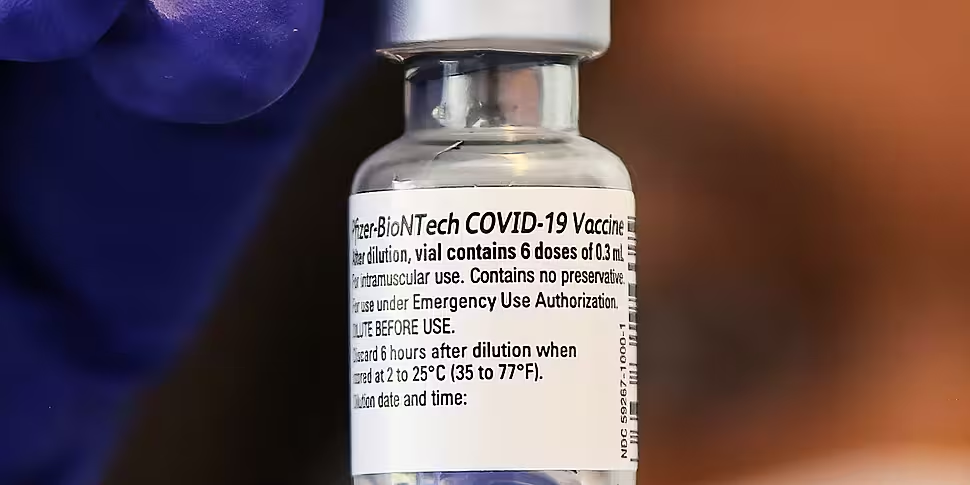It's a "little bit self-centred" for Europe and Ireland to be thinking about large-scale COVID-19 vaccine booster campaigns at this stage, an immunologist says.
Professor Cliona O'Farrelly says much of the world still hasn't been vaccinated, with even healthcare workers and vulnerable groups still waiting in some countries.
However, she said it does look like immunocompromised people will need a third dose of a vaccine.
She was speaking as the EMA considers data around booster doses of the Pfizer vaccine.
Officials are looking at whether a third dose should be given six months after the second dose to everyone over 16.
It's separate to work already underway on whether severely immunocompromised people should receive an additional dose of an mRNA vaccine.
Work is already underway in Ireland to give immunocompromised people a booster dose in the coming months.
On Newstalk Breakfast, Professor O'Farrelly said it is likely some people will need an extra dose.
However, she said: “We should be celebrating the success of where we are, and take a few seconds to imagine where we’d be with respect to Delta if we didn’t have vaccination.
“I am a little bit concerned that we’re just a little bit self-centred to be talking about boosters at this stage, when there are so many countries that don’t have vaccination - there are still healthcare workers who aren’t vaccinated.
“I really think we should be continuing to put pressure on ways of getting technology to these other countries…. I think Ireland could have a much stronger voice.”
The WHO has urged wealthy countries to hold off on large-scale booster campaigns until more vaccine doses are sent to poorer countries.
Vaccine protection
Professor O'Farrelly said we don’t know for definite yet when vaccine protection starts waning, as the rollout of the jabs only began around nine months ago.
She said scientists are "very optimistic" the vaccines will protect many people for months or years, but the data is still emerging.
Nonetheless, she said breakthrough infections tend to be most severe in people who are immuno-suppressed or have other serious underlying conditions.
She said: “If we can identify those vulnerable people and make sure they get a booster, then that could help a lot.
“We still need to be careful while vaccinated, even though vaccination is having such an effect already on the deaths rates and ICU."
Meanwhile, new HSE figures show up to 12,000 children are restricting their movements because they’re deemed a close contact of someone with COVID-19.
Around 700 primary schools and 500 secondary schools have reported a case of the virus and, on average, there are 15 close contacts of someone in primary school and four in secondary.
Professor O'Farrelly says that shows the level of disruption to everyday life the virus can still cause, even if the vast majority of those children will not get very sick.









